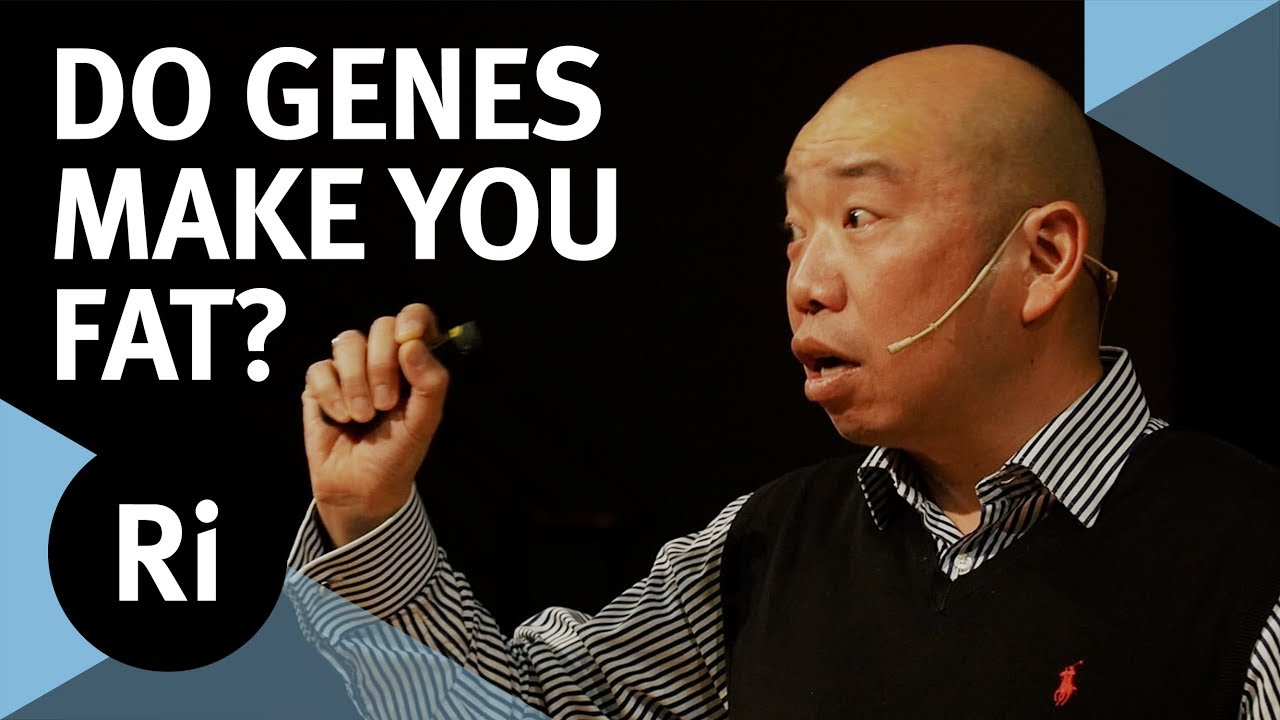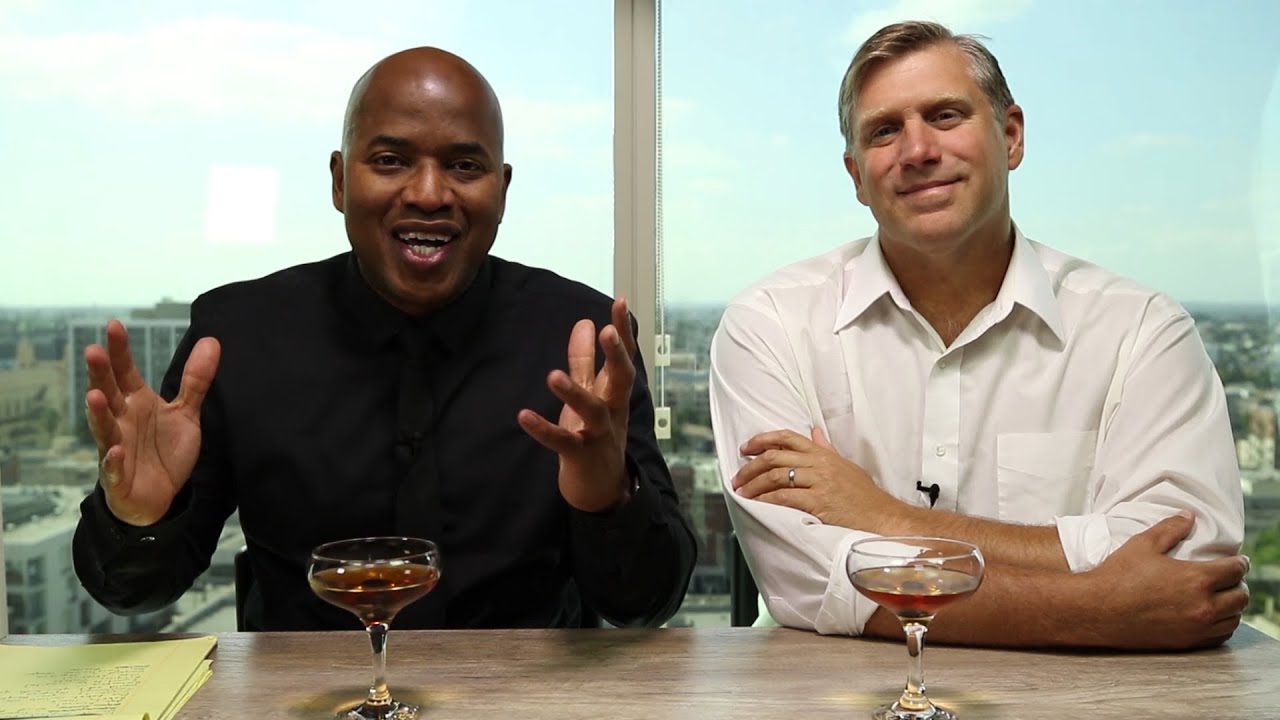The Royal Institution
Are your genes to blame when your jeans don’t fit? Giles Yeo explores the role of genetics in appetite control and obesity.
Subscribe for regular science videos: http://bit.ly/RiSubscRibe
Giles’ book “Gene Eating” is available now – https://geni.us/jnNxw0p
Watch the Q&A here: https://youtu.be/bhmpsxXIi_U
While the obesity epidemic is a contemporary problem, undoubtedly due to changes in our lifestyle and in the types of food we eat, differences in our genetic make-up mean some of us eat more than others. Join geneticist and neuroscientist Giles Yeo as he discusses how we use genetics as a tool to understand the biological variation in appetite control.
Giles Yeo is a neuroscientist and geneticist at the University of Cambridge. He is a Principal Research Associate and group leader at the University Metabolic Research Labs, studying brain control of food intake and bodyweight. He is also director of the Genomics and Transcriptomics core facility.
This talk and Q&A were filmed in the Ri on 26 January 2018.
The Ri is on Twitter: http://twitter.com/ri_science
and Facebook: http://www.facebook.com/royalinstitution
and Tumblr: http://ri-science.tumblr.com/
Our editorial policy: http://www.rigb.org/home/editorial-policy
Subscribe for the latest science videos: http://bit.ly/RiNewsletter
Product links on this page may be affiliate links which means it won’t cost you any extra but we may earn a small commission if you decide to purchase through the link.
Source




Excellent.
Do you research Labradors in a Lab lab?
What happened between 1984 and 2010 that caused the rise in average body mass? The genetic tendencies didn't suddenly start. Was it the rise of fast food restaurants? A move away from home cooking of basic ingredients & the switch to boxed food in the microwave? The rise of two parents working and so no one specialising in cooking at home? Something else?
As an ex doctor who do i send my bill for ptsd treatment too? The krebs cycle… fun times…
Go low carb and fast – your appetite will disappear – it is not gonna be overnite but it will happen – wait and see
I looked up this question and tried to find a ~5 minute video to give me a quick answer. Tapped on this instead and I’m glad I did, really interesting to watch him dissect this and talk about each small component
My jeans make me look fat.
people only like black and white .. I know why he smiled 😛
A simple look at people just a few generations ago, should make it fairly obvious that obesity isn't genetic, because there were very few obese people back then, in the days before processed junk food. It is only since people stop eating whole foods and started gorging themselves on junk food that obesity has become such a major problem.
Usually physic, you are right. Why then all this psycho babble? "Discipline grasshopper", just ask the Karate Kid.
The Cheesecake Factory gets it
You are what you eat.
Thnk you Mr. Yeo. After starving and exercising for decades, they talked me into cutting off my stomach, then told me after hundreds of surgeries that I was their first and only failure. Now I suffer from malnutrition, on top of everything else. It's possible that it is mitochondrial and enzymatic, and now, finding your videos, there is a new idea with genetics. People do look and judge, thank you for looking and understanding.
With all due respect, this is complete nonsense and a dangerous message to be sending. "I'm obese because of my genes. Oh well, nothing i can do about my genes so I guess it's not my fault" inhales a big mac
Cool. I do feel slightly hungry all the time and my partner is always like. If you're hungry think how hungry I must be?! (As a guy with no weight issues). It's tough. Really tough. It's like fighting an addiction everyday. But your poison is everywhere you go (petrol stations, supermarkets, down the street going past cafes) and you have to eat so you can't go cold turkey. No matter what I try I cannot lose weight.
In other words genetics determines a large part in size and weight of people;ok we get it now cure it!!!!
A lot of people don’t eat much and healthy and are still huge;hmmm I wonder why ummmm idk ummmm GENETICS DUH!!!
Remember you are what you eat unfortunately but genes do affect weight though.
Pork scratchings 😂😂😂
49:30, maybe intentionally misinterpreting…
Giles fantastic presentation!!!!
19:00 I learned this in college. I was shocked because i grew up thinking it was the individual's fault.
What are pork scratchings?😂😂😂
Dessert Tummy! Thank you for the explanation of why I always crave a sweet after a meal, even when I'm full from the main course. I'll enjoy discussing this tonight with my friends…over dessert 😋
solution is still the same because solution is 100% how. why is certainly part of mindset and motivation but shifting from obesity to a healthy BMI is all about how.
Science is becoming very clear on the "how"
losing weight has become easier than ever for the motivated as much as obesity has for the unmotivated .
Because they are stone age genes in the space age
Depends on the cut
Very interesting, although the constant ‘Okay’s quickly become distracting and annoying …
Btw, wonder what condition I had as a kid and young man. I ate like a horse, wasn’t very physically active, and stayed skinny no matter what. In fact, according to BMI, I was underweight.
Sugar with a capital S lol
another thing that never taken into account is that our ancestors almost universally had intestinal parasites that robbed them of calories making them to want more food those habits are still with some of us
Eat less move more would work if we were simple machines but we aren't – hormones particularly insulin complicate matters – look it up.
excellent
@Giles Yeo. You are a speaker!
Good lecture but I hope this class doesn’t give people a reason to not watch their waistline!
Algorithm, recommend this video to Chethan Bhagat.
I've not watched this yet, I'm just doing it for posterity, but I think this is going to be something to do with epigenetics.
the fun thing is, you can loose weight even when you eat more then you burn, at least as a type 1 diabetic and you can maintain your weight even tho you eat more then you burn as a bulimic. either ways, the behavior that leads to this phenomenon is very unhealthy and dangerous.
Hmmmmmm very interesting yesssss;NOW CURE OBESITY;IT’S A DISEASE!!!
Just started watching, I'll be very interested if there is mention of gut bacteria and the cases where gut bacteria transplants have let people lose weight without effort, apparently it just felt 'natural' to eat differently.
Genes make it so that if you get enough calories you don't starve to death. Ask around.
Genetics loads the gun, behavior pulls the trigger.
For anyone that doesn't know, medication, specifically atypical antipsychotics, cause HUGE weight gain. They make you hungry 24/7 so even if you start out skinny with a fast metabolism, you will put weight on with those drugs very quickly.
Most twin studies are BS. The twins are not separated right at birth. Often, they live a few key years together. Often, they live in the same geographic area. Epigenetic factors have to be taken into consideration. Often they are not.
The first half of this lecture was wonderful for a lay audience– a limited number of important, big concepts that could be understood, remembered, and probably even repeated by many of the people who watched it.
But then the talk become more and more sophisticated, nuanced, jargon littered, and really, babbling for any but a sophisticated audience member who came to the talk already prepared with a fair amount of information. In other words, too much flitting from one piece of information and idea to another so many of us might be able to parrot his last statement– but hardly anybody could walk back through even the 3 or 4 ideas that preceded it– no less the 20 or 40 or 50 that made up this ultimately baffling waste-of-time lecture.
I love Dr Yeo's work and I hope his work can be used in eating disorders treatment